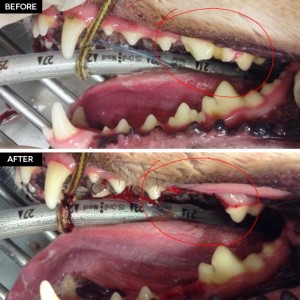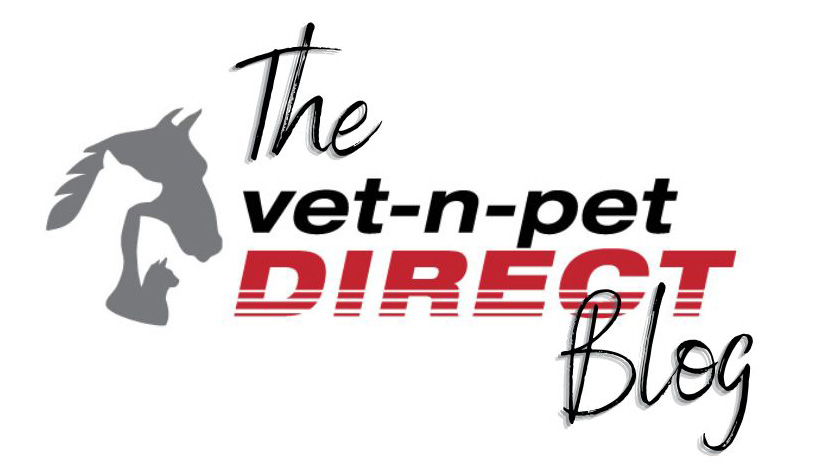
August is Pet Dental Awareness Month and coincidentally my dog Beau has just had a tooth infection.
One night I noticed a small amount of swelling under Beau’s eye and it was painful when touched. After having a little poke, smelling his breath (which was a little bit stinky) and having a look in his mouth I thought it must have been a dental issue. I took him to the vet the following day and they confirmed that yes it appeared to be a problem with the upper carnassial. Thankfully it looked like it was just in the early stages of the tooth infection and it had not caused him too much pain or discomfort but he did require surgery to remove the tooth.
So the following day Beau underwent dental surgery to remove the problem tooth. The root of Beau’s upper carnassial had become infected because the tooth had a fracture in it and then a bacteria was able to work it’s way into the root of the tooth and cause the problem.
While the veterinarian had him in surgery he also removed two other premolars that looked like they had a lot of enamel wear and could possibly cause issues in the near future. Beau also had a full scale and clean at the same time so his teeth are looking beautiful now.
Beau was on two types of antibiotics and pain relief post surgery as well as a soft food diet for a week. He has just had his post surgery checkup and everything looks good. He has made a full recovery with the swelling and pain being resolving within a couple of days after surgery.
Good dental hygiene in pets is sometimes overlooked, however it is a very important part of keeping your pet healthy. If a pet is having dental problems it can affect their overall health. The animal may not want to eat as usual due to pain and inflammation. When plaque and tartar build up on the teeth, bacteria will grow and eat away at the teeth and gums. Often when a tooth is broken or fractured bacteria is able to get into the tooth’s root and cause an infection.
It is important to be aware of the symptoms that may indicate a dental problem in your pet. These include;
* bad breath
* excessive drooling
* bleeding gums
* swollen, red or discoloured gums
* broken, chipped or loose teeth
* discolouration of the teeth
* plaque or tartar build up on the teeth
* reluctance to chew or eat
If you ever notice any of the above symptoms in your pet you should get them checked by a veterinarian. Early treatment of a dental problem is always best for your pet and often a lot quicker, easier and cheaper to resolve than when left untreated.
If you have any concerns regarding your pet’s dental health or any health concern at all please contact your veterinarian.
Until next time,
Bec
